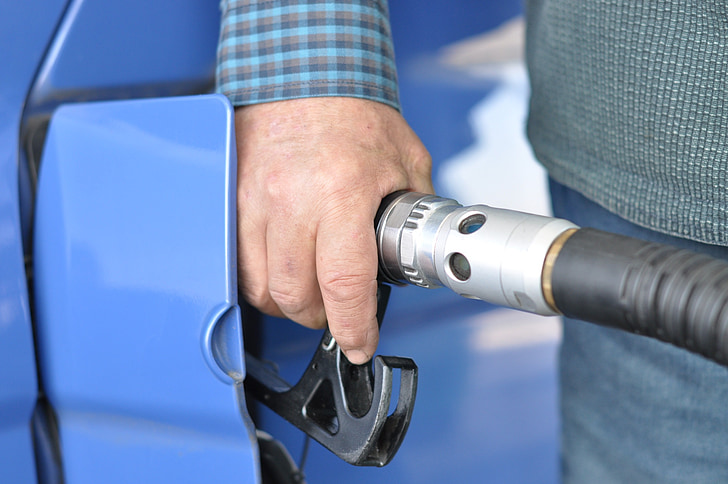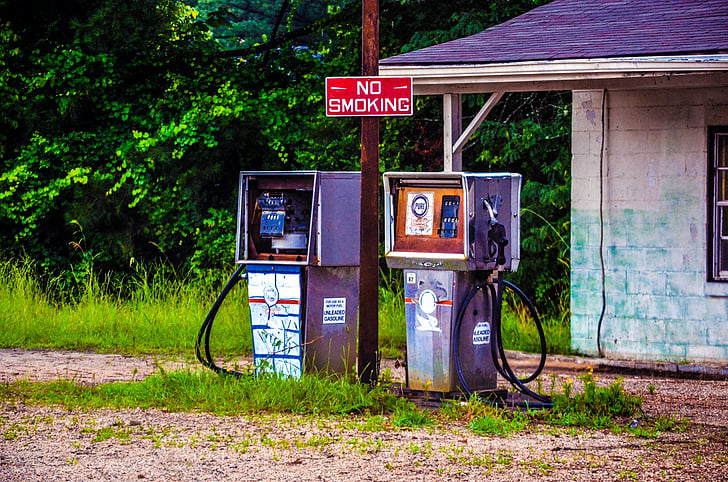Is Answering Calls Near Gas Really Dangerous?

Assuming you're at the gas station, the pump clicks away as you fill up your car. Your phone buzzes, and instinctively, you reach for it without a second thought. Suddenly, a fellow customer shoots you a worried glance and gestures to the caution sign warning against cell phone use. But is there any truth to the myth that answering calls near gas is a recipe for disaster? Let's unravel the mystery together.
Explanation of the Myth
The belief that answering calls near gas can lead to catastrophic consequences has been ingrained in our collective consciousness for years. The origins of this myth are as varied as they are intriguing. Some say it stems from a cautionary tale about the potential for electromagnetic interference from phones to ignite gas fumes. Others argue that the act of answering a call itself could produce a spark, setting off a chain reaction of events.
As this myth continues to circulate, it's crucial to delve deeper into the reasons behind the perceived danger. When we understand the underlying concerns and explore the science behind them, we can separate fact from fiction and make informed decisions regarding our safety around gas.
Scientific Perspective
To assess the validity of the myth surrounding phone use near gas, it's necessary to consider the properties of gas and the conditions required for ignition. While it's true that gas is highly flammable, the notion that a simple phone call can trigger an explosion is based on a misunderstanding of the science involved.
For gas to ignite, three elements known as the "fire triangle" must be present: fuel (in this case, gas vapor), oxygen, and an ignition source. While phones do emit electromagnetic fields, the likelihood of these fields igniting gas vapors is exceedingly low. Additionally, modern electronic devices are designed with safety features to limit electromagnetic interference, further reducing the risk of a spark.
By examining the scientific principles at play, we can better contextualise the myth and make informed decisions about our interactions with electronic devices in proximity to gas. Stay tuned for the next section on precautionary measures to ensure our safety in these scenarios.
Precautionary Measures

It's always essential to prioritise safety, especially around potentially hazardous substances like gas. General guidelines include refraining from smoking, open flames, or any activities that could cause sparks near gas. When it comes to electronic devices like phones, the key is to exercise caution and common sense. Avoid using or charging electronic devices near gas leaks, tanks, or filling stations.
Debunking the Myths
In the realm of urban legends and safety warnings, the myth of phone-induced gas station explosions holds a prominent place. However, upon closer examination, this myth falls short in the face of scientific scrutiny. Let's debunk some common misconceptions surrounding this myth:
Electromagnetic Interference Ignites Gas: The idea that electromagnetic fields from phones can ignite gas vapours lacks substantial scientific evidence. While electronic devices emit electromagnetic radiation, the energy levels are typically insufficient to trigger an explosion.
Answering Calls Causes Sparks: Contrary to popular belief, the act of answering a phone call does not generate sparks significant enough to ignite gas fumes. The conditions required for a spark capable of causing ignition are far more complex and specific than simply interacting with a mobile phone.
Safety Features of Electronic Devices: Modern smartphones and electronic devices are designed with safety features that reduce the risk of electromagnetic interference. These devices undergo rigorous testing to ensure their compliance with safety standards and regulations.
Static Electricity Poses Greater Risk: In reality, the primary concern at gas stations regarding ignition is static electricity rather than phone signals. Taking precautions to discharge static buildup, such as touching metal surfaces before fueling, is a more practical safety measure.
As we address these misconceptions and examine the scientific principles involved, we can debunk the myths surrounding phone use near gas stations and foster a more informed understanding of safety practices in these environments.
In conclusion, The fear that answering calls near gas pumps is dangerous is largely unfounded. Scientific evidence does not support the claim that cell phones can ignite gasoline vapours. The real hazards come from static electricity and the distractions caused by phone use. It’s essential to remain attentive while refuelling and to follow safety precautions to prevent accidents.
In summary, while the myth of cell phones causing explosions at gas stations makes for a compelling story, it remains just that—a myth. By staying focused and aware of our surroundings, we can ensure our safety and the safety of others at the pump.
References
(1) Is Cell Phone Use at Gas Pumps Dangerous? | Snopes.com. https://www.snopes.com/fact-check/fuelish-pleasures/.
(2) Is using a phone while pumping gas actually dangerous? Not as much as .... https://techxplore.com/news/2022-06-gas-dangerous-car.html.
(3) Is using a phone while pumping gas actually dangerous? Not as much as .... https://www.usatoday.com/story/news/nation/2022/06/16/phone-gas-station-explosion/7490115001/.


It seems to me that batteries, alternatives and generators in cars would ave a stronger magnetic field than a cellphone. We know that the electrical system has enough charge to light a spark plug.
If they didn't the car wouldn't move forward.
I may be wrong but it seems that the car battery is able to live in harmony with the fuel lines.
!WINE
Posted using STEMGeeks
It's intriguing how the car battery is able to coexist with the fuel lines and other components without causing any major issues. The engineering behind it all is truly impressive
Thanks for your contribution to the STEMsocial community. Feel free to join us on discord to get to know the rest of us!
Please consider delegating to the @stemsocial account (85% of the curation rewards are returned).
You may also include @stemsocial as a beneficiary of the rewards of this post to get a stronger support.